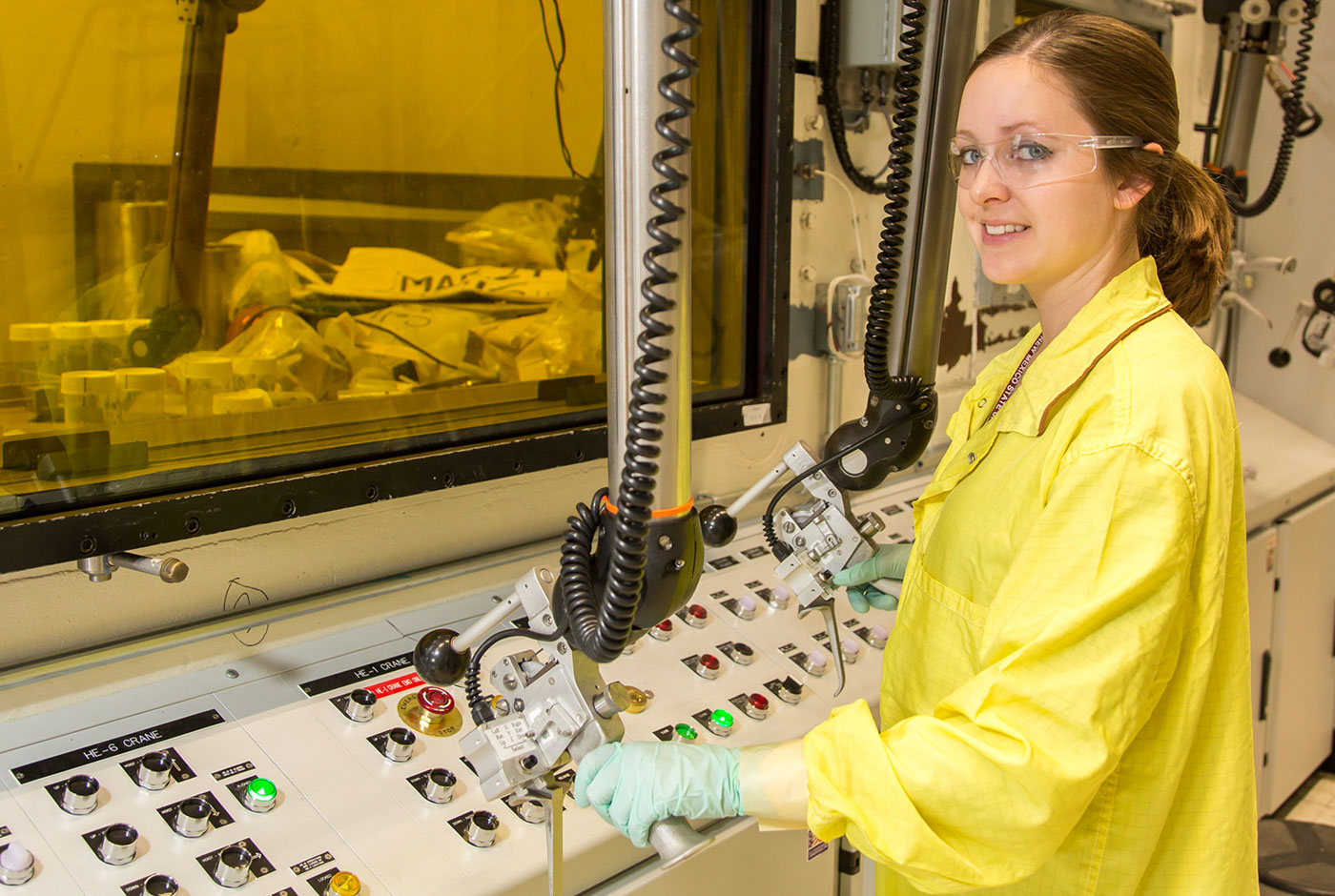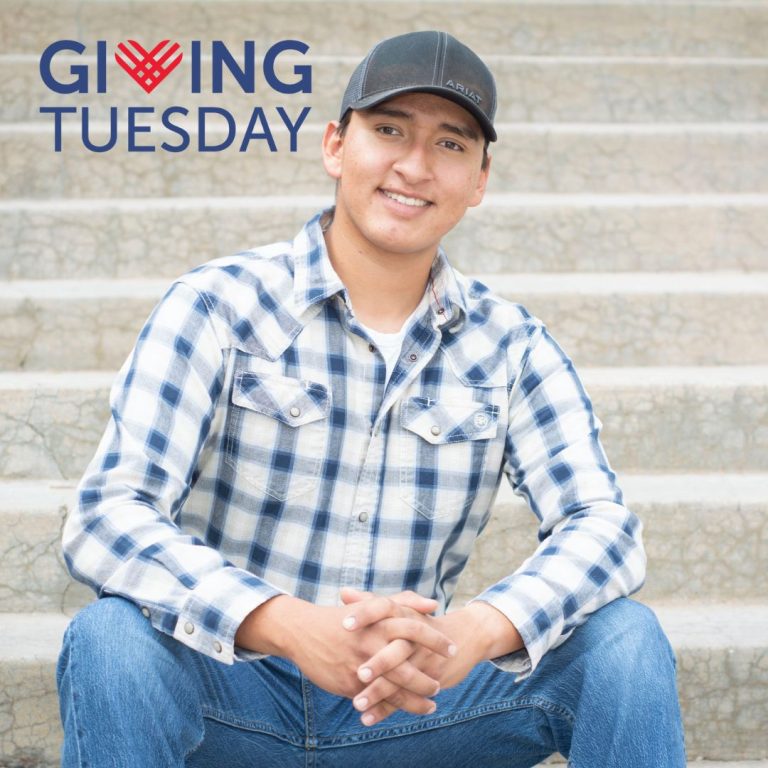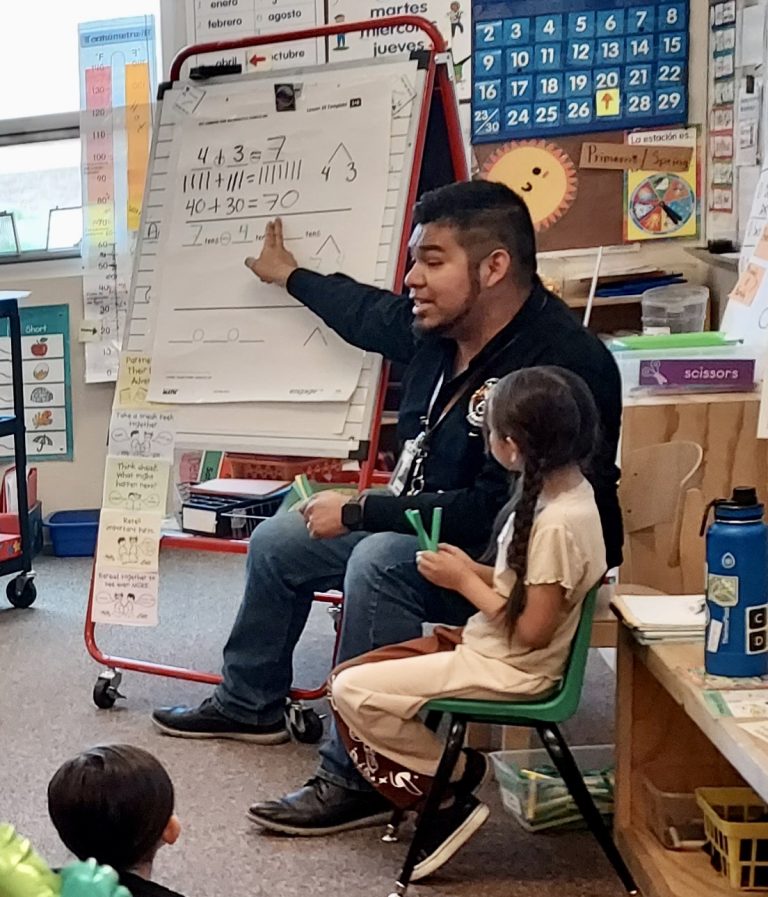Scholarship and Lab Internship Helped Shape the Career of a Winner from the Valley
Lindsay Redman says she always knew she would have a career in science. As early as Kindergarten, she was active in school science fairs and sought opportunities to learn and explore.
The benefits of attending smaller schools like Holy Cross Catholic School in Santa Cruz and McCurdy School in Española were the emphasis on developing writing and communication skills, as well as the individual attention and support she received from teachers and the school community. However, opportunities in science were somewhat limited, so science fairs provided the main avenue for learning along her path of interest.
With high grades and participation in drama, student government, sports, and competing in three state science fairs, this high school honors student was an excellent candidate for an award from the Los Alamos Employees’ Scholarship Fund. In 2011, Lindsay won a Bronze scholarship and set a course for a biology degree and a career as a doctor or dentist, following in her father’s footsteps.
Lindsay Redman on the job at Los Alamos National Laboratory, working with the Isotope Program to understand the rare element actinium and to develop radiotherapy treatment for cancer. (Photos: Los Alamos National Laboratory, Richard C. Robinson)
The summer before her senior year, and even before winning the scholarship, Lindsay pursued an internship at Los Alamos National Laboratory and was placed in the Chemistry Division as an administrative assistant. After high school graduation, she returned to the Lab as a summer intern, moving to the Isotopes group with her mentor. This time, after showing interest and initiative, she was given more technical work.
Lindsay attended New Mexico State University and returned to the Lab during winter and summer breaks. By working in the Isotopes group she developed an interest in inorganic/isotopic chemistry. She was so intrigued by the research and the desire to find better treatments for cancers that she changed her major from biology to biochemistry during sophomore year.
Her new direction wasn’t easy, and she had some catching up to do. “I had never taken a chemistry class before, or physics,” she said, “but I was inspired by my work.”
Through my work at the Lab, I was able to see how science is applicable to medicine. If I hadn’t started working at the Lab, I would have been on a different path.
After earning a bachelor’s degree in biochemistry in 2015, Lindsay returned to the Isotope Program as a Post-Bac Student. She was involved with the C-IIAC Isotope Program’s multi-disciplinary effort to understand actinium complexes for targeted radiotherapy treatment of cancer. “We characterize and model highly radioactive, novel, actinium-containing molecules to obtain a first glimpse of the coordination chemistry and electronic structure of this unexplored element for medicinal applications,” she explained.
In the Fall of 2016, she left New Mexico to attend Vanderbilt University in Nashville, TN, to study quantitative and chemical biology. She is pursuing a PhD for a career in biomedical research, circling back to her original interest in the medical field by way of chemistry.
“Through my work at the Lab, I was able to see how science is applicable to medicine,” she said. “I want to make an impact in cancer therapeutics, maybe through researching or testing a new drug. If I hadn’t started working at the Lab, I would have been on a different path.”
Lindsay recognizes that receiving the LAESF Bronze award significantly impacted her life and career as a scientist. Before returning to college, she decided to “pay it forward” by making a donation to the Scholarship Fund during the Lab’s annual fundraising campaign in 2016. She also played an active role to promote the scholarship program to her colleagues and share the importance of creating opportunities for other students in Northern New Mexico.
“The scholarship allowed me the time to obtain valuable undergraduate research experience while alleviating the financial stress. My ability to dedicate so much to research helped me to achieve more as a student. Additionally, my involvement in the Isotopes Program for five years molded my scientific interests and gave me the mentorship that I gratefully attribute to my success.”



